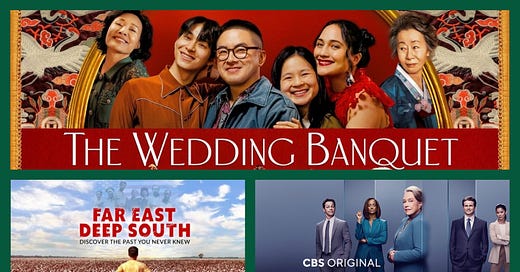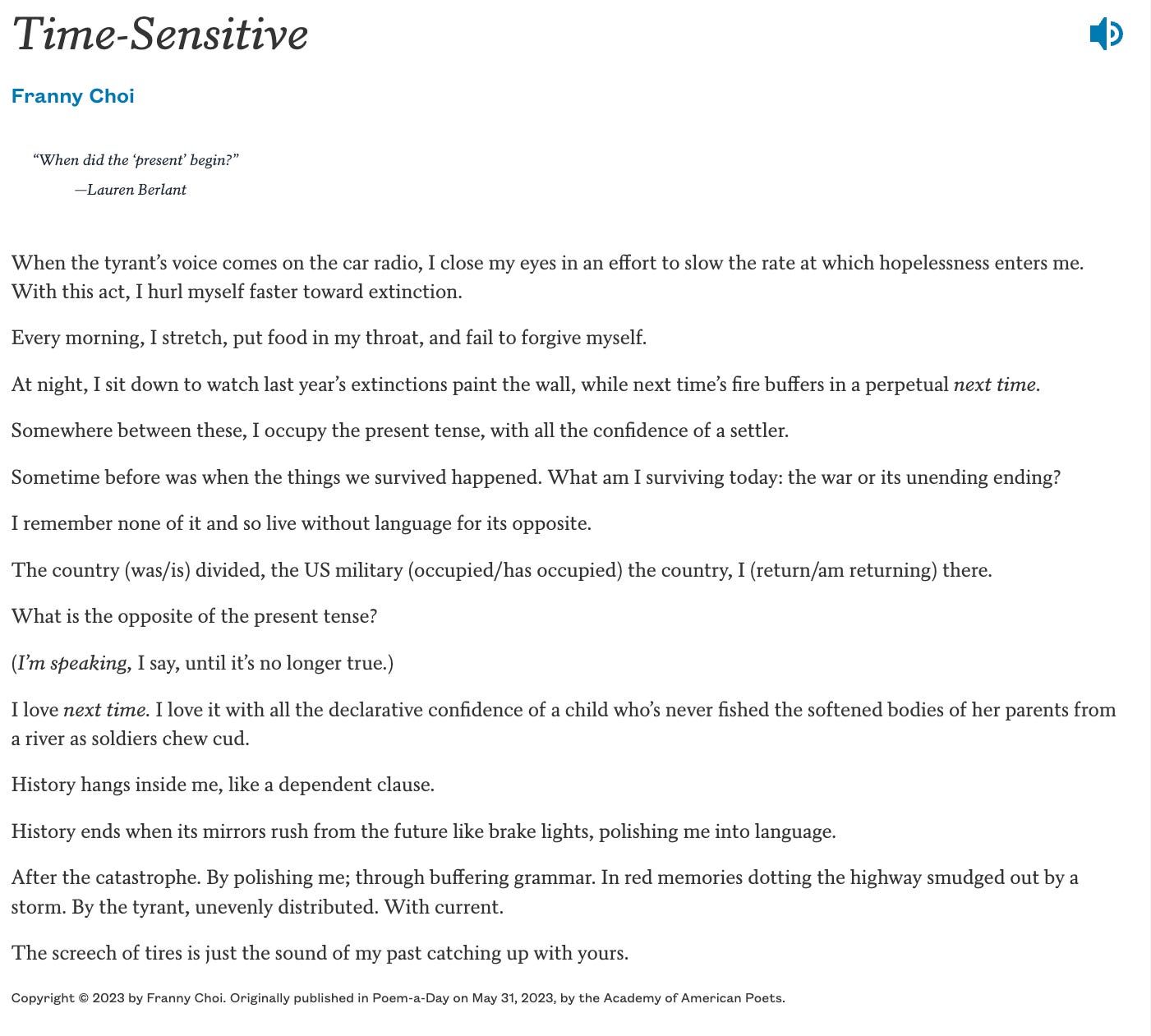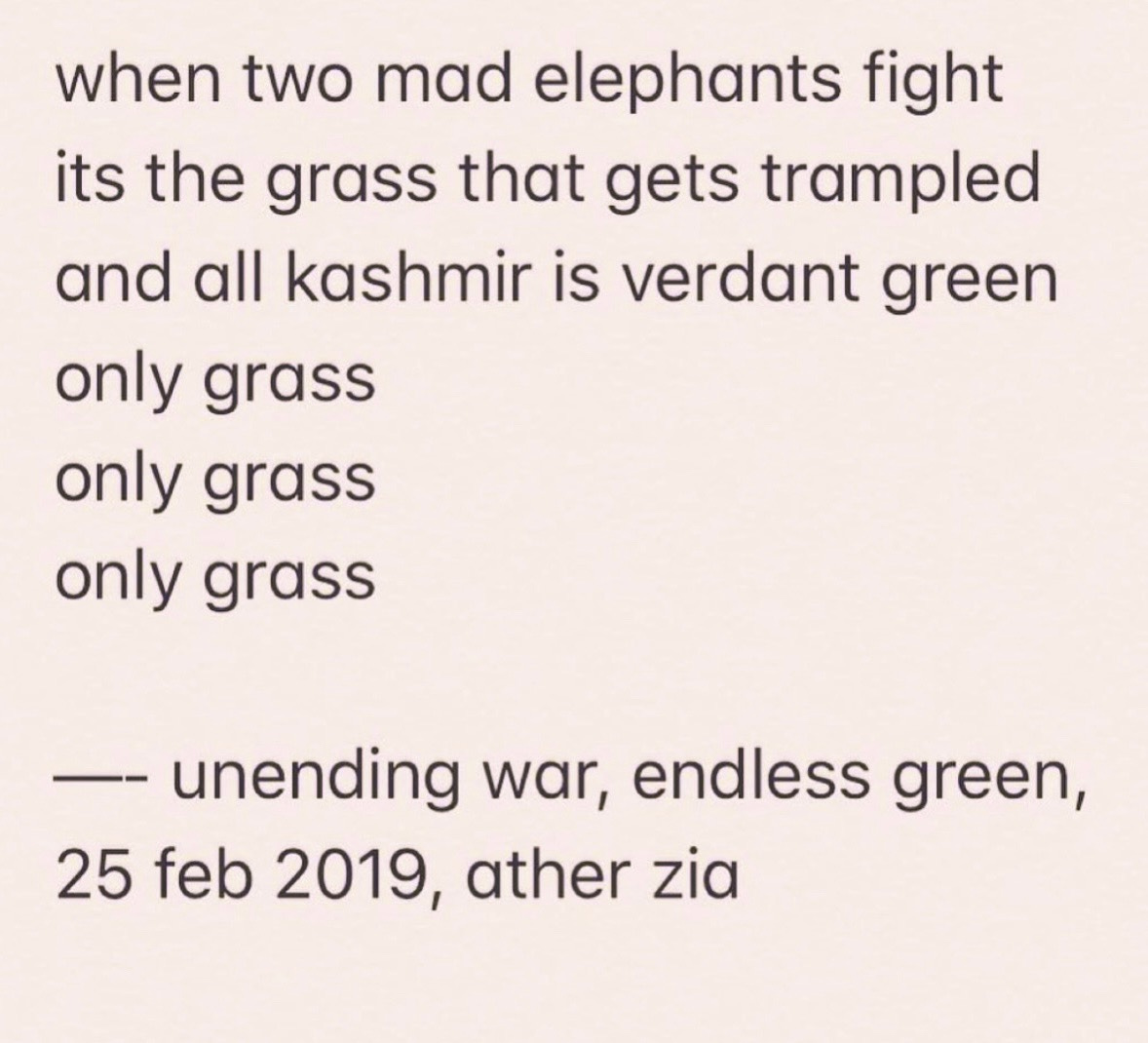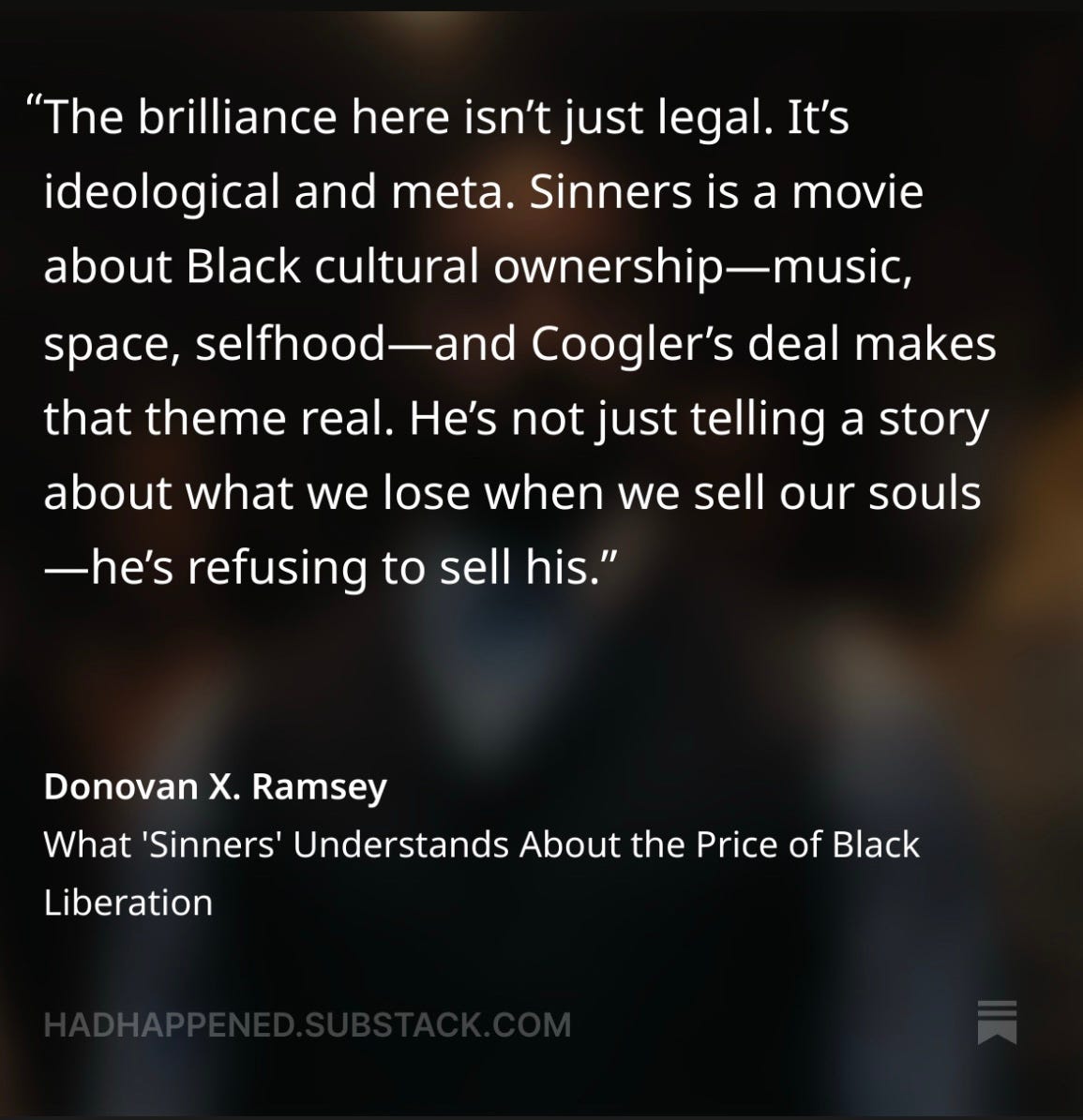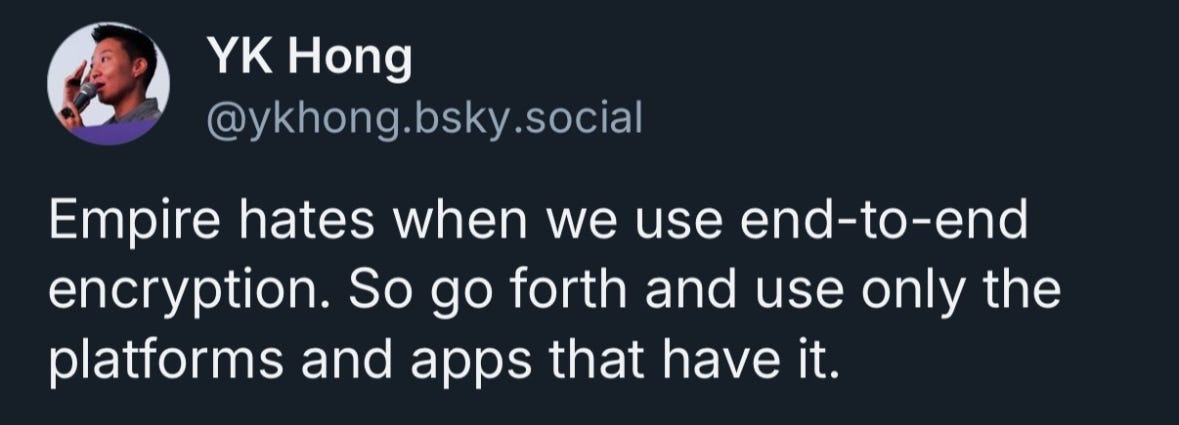#NationalPoetryMonth:
Until May 8th: Movie: No Other Land (Online Rental US): This is 2025 Oscar winning documentary about the people of Masafer Yatta, a region with over 30 ancient Palestinian villages. The filmmakers, one of whom (Hamdan Ballal) was assaulted and detained by Israeli forces weeks after winning the Oscar, were not able to secure a United States distribution deal for this film. It is now available for streaming in the US until May 8th. All proceeds go to support the community of Masafer Yatta as they continues to deal with home demolitions, settler violence and more. Almost all of this documentary was filmed before October 7, 2023.
“No Other Land is the first documentary to shed light on the policy of forced expulsion through home demolitions. Settler and army violence, harassment and encroachment are another primary tool which makes life impossible and seeks to force communities to leave.” - About Masafer Yatta
TV: North of North (Netflix): I had a grin on my face the entire time watching this Canadian series, and that should be all the endorsement you need in these times. It’s a coming-of-age and workplace comedy set in Arctic Canada, and somehow manages to be funny, tender, and honest all at once.
“With its mix of Indigenous cultural specificity, a winning coming-of-age story, and a charming ensemble, North of North is delightfully bingeable. Watching this eight-episode season is basically four hours of sustained stress relief, and for those needing a break from the world at large…” - Vulture
The soundtrack? Addictive. Lots of it in Inuktitut, the language of the Inuit people, and I’ve been listening to these few songs on repeat. The show is sweet and funny, but doesn’t shy away from the brutal history of First Nations people in Canada. The creators and most of the cast are Indigenous. I cannot wait for season two.
Movie: Sinners (Theaters): Horror is #NotMyGenre, but Ryan Coogler and Michael B. Jordan collaborations (Fruitvale Station, Black Panther, Creed)? I trust them—and I’m so glad I did. Sinners is fiction and supernatural, while deeply rooted in true history, of Black people, of the US south and the Delta. Coogler did the research, and the layers are deep with history for this movie with laughter, incredible music, and a haunting feel (and yes, too much gore for me!)
Coogler included not only the Mississippi Choctaw in this film, but also Mississippi Chinese American history. Coogler discovered his father-in-law had family ties to this history and key characters reflect this unique, so very American story - one labor exploitation after slavery ended, and the complexity of racial identity in a white supremacist society. I knew a little about this history, and a few years ago, I saw Far East Deep South (available for free on Tubi). Dolly Li, a documentarian (see below), consulted for Coogler on this film, helping bring this untold history to life.
It wouldn’t be Sujata Said if I didn’t mention the discourse around the movie, its profits and the deal that Coogler secured for himself. Coogler’s deal with the studio for Sinners included a $90 million budget, a share of box office profits, and reversion of rights back to him after 25 years, and establishment Hollywood and media seems to pretty mad about it, even as other directors have had the same deals without the same discourse/uproar.
In addition, Sinners had the biggest opening for an ORIGINAL film since the pandemic (meaning not based on IP) and yet that same establishment and media is putting caveats on its success and profits, which continued into weekdays and its second weekend box office this past weekend, highlighting the disparity that Black filmmakers face even when achieving success comparable to their white counterparts.
Movie: The Wedding Banquet (Theaters): This remake of the 1993 Ang Lee classic isn’t a slapstick rom-com like the trailer might make you think. It’s more of a dramedy, and a nice way to spend 90 minutes. The two couples - Kelly Marie Tran & Lily Gladstone, Bowen Yang & Han Gi-Chan - are all solid performances, but it’s Joan Chen and Yuh-Jung Youn as a mother and grandmother who completely steal the show. It made me laugh, it was tender, and, I also wanted to shake Tran’s and Yang’s characters for being absolutely terrible at communicating with the people they supposedly love.
TV: Matlock (CBS): Not the 1980s Andy Griffith Matlock - this time, it’s Kathy Bates in the lead, playing a retired lawyer who re-enters the game at a high-powered corporate firm at an older age and shakes the place up. The structure balances a long-term mystery with a solid case-of-the-week format. And the lead character? Complicated. There are moments when I’m genuinely frustrated with her; she can be manipulative, and then, a few minutes later, I’m completely rooting for her. The first season just ended so you can watch it and see if you are ready for season 2 in the fall!
Alive at the End of the World: This is one of my favorite poetry collections by one of my favorite poets, writers, and culture critics Saeed Jones (of perennial podcast recommendation VibeCheck). I’ve decided to use it as the name of a new regular feature with recommendations and tips for these authoritarian times in the United States. I’m not here to convince you that we are in dangerous and precarious times. We are here. For many communities, we have been here for a very long time, not just since January. I’ll be offering tips and resources periodically for you and those you love. They will also be compiled in this evergreen document.
**If you have corrections for me or other resources to add, please comment or message me**
Digital Hygiene Basics (That You Can Actually Do) - Part 1: There are a few things we should have all been doing for a while, regardless of who’s in government (let’s be real, the tech oligarchs have been calling the shots for a while). But now, with more of us being targeted, our digital security matters even more. I’m going to share a few key tips today and in my next few newsletters. Look, it’s a little annoying to download new apps or add extra steps, but maybe convenience isn’t the goal at the cost of safety and privacy from an ever increasing authoritarian US and world.
My guide on this is YK Hong who I follow religiously on YouTube, Instagram and Substack for the best tips on tech and digital security, and the surveillance state (and learning about Korean politics!). I highly recommend you follow them (they are also on tiktok and patreon) for all things digital, tech and more.
”Big Tech’s primary purpose is not to protect your data, but to harvest and profit from it. This is a constant reminder that Empire and the corporations that thrive under them in no way have your best interests in mind, so do not use their platforms as if they do…Take what you need, protect what you can. Stay private and secure out there.” - YK Hong, End-to-End Encryption Should be the Bare Minimum
Use end-to-end encrypted messaging: Let’s talk about Signal! Yes, the messaging app that’s been in the news recently, thanks to the so-called US Secretary of Defense. But as YK Hong said recently: “I believe in its end-to-end encryption technology. I don’t, however, trust all the people using that technology.” 💯💯💯
What is end-to-end encryption (E2E)? It means only you and the person you’re talking to can read the messages. Not your phone company, not Signal itself, not some hacker in a basement. The message gets scrambled in transit and only unscrambles on the other person’s device. That’s what makes it secure. But here’s the catch: secure doesn’t always mean private. Even with E2E, governments can still subpoena metadata (like who you talked to and when), or get info directly from the device. And if the platform stores backups or cooperates with law enforcement/governments (hi Apple, Google, Meta), they’ll hand that over. They have before, and they will again.
That’s why I’ve been using Signal since around 2014. It’s E2E-encrypted, but also built for privacy. They don’t log who you’re messaging, and they’ve consistently said no to government requests for data. And unlike other platforms, they’ve held the line.
I get it! One more app to download, and you have to convince your friends and colleagues to use it too. But if you care even a little about keeping your convos private, not just from trolls but from companies and governments, it’s worth it.
Other secure and private messaging apps:
Threema – no phone number or email needed
Wickr Me – strong security, used by journalists and activists
Wire – for individuals and teams, encrypted and clean
More tips on digital and tech security to come in future newsletters!

